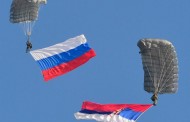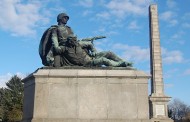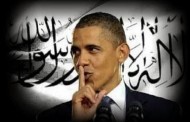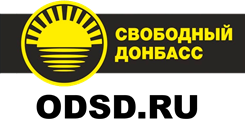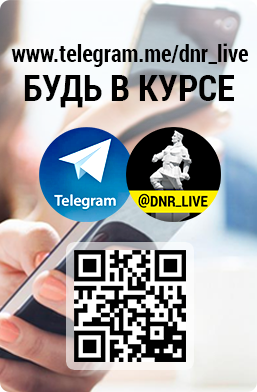Milorad Dodik, the president of Bosnia’s Serb-dominated entity Republika Srpska, shrugged off the possibility of arrest after state prosecutors called him for questioning over a banned ‘statehood day’ referendum.
Dodik said on Tuesday that he does not feel safe enough to go to Sarajevo to answer calls to attend a prosecution hearing after Republika Srpska held a controversial referendum in defiance of a ban by the state Constitutional Court.
“I said earlier that I will answer every call from the court and prosecutor’s office, but not in Sarajevo,” he told a press conference in Banja Luka broadcast live by RTRS TV.
“Anywhere else I will go and give my statement, but not in Sarajevo,” he added
Dodik said the Bosniak chairman of Bosnia’s tripartite presidency, Bakir Izetbegovic, had compared him to the slain Libyan leader Muammar Gaddafi.
This was an invitation for extremist groups to attack him, claimed Dodik.
“If [the state prosecution wants] to arrest me, that is their problem but I don’t want to jeopardise my safety by going to Sarajevo,” he insisted.
The outspoken Bosnian Serb leader, who championed the banned referendum that took place on Sunday, was called on Monday by the state prosecution to answer questions over defying the Constitutional Court’s ban.
He responded later the same day by saying he was not afraid of arrest.
Dodik declared himself unafraid of arrest on Monday evening after Bosnia’s state prosecution called him to appear at a hearing in connection with Sunday’s banned referendum in the Serb-led entity.
The Republika Srpska leader told N1 TV that the state could not arrest the leader of a people.
“I’m not in charge to be afraid and I have no fear. I think that this story about the arrest is more of a cover for those who wanted to stop the referendum. Now they are trying to make some new arrangement. Do they think that the state can be built with political persecution of one people’s leader?” he asked.
He added that he was not a man of war but a “fighter for the political rights of the people”.
Bosnia’s state prosecution confirmed to BIRN that it had invited Dodik to a hearing “as a suspect at the case related to failure to enforce the decision of the Constitutional Court related to the referendum process”.
Security Minister Dragan Mektic told local media that if Dodik refused to comply with the state prosecution’s request without a good excuse, he would be arrested.
Serb voters in Republika Srpska voted overwhelmingly in the referendum on Sunday to continue celebrating their annual ‘statehood’ holiday on January 9.
The referendum was a reaction to a decision last year by the state-level Constitutional Court, which ruled that holding the annual Day of Republika Srpska on January 9 was discriminatory against non-Serbs in the entity because it was also a Serbian Orthodox religious holiday.
January 9 was the day in 1992 that Bosnia’s Serbs declared the foundation of Republika Srpska, which the country’s Bosniaks see as a precursor to the war that broke out soon afterwards.
The referendum – seen by some as violating the Dayton Agreement that ended the war – was strongly opposed by the EU and the US.
Republika Srpska’s ally Serbia declined to support it, although Russia offered its backing.
The Constitutional Court, which also banned Sunday’s referendum, will convene at a plenary session on Friday to discuss next steps now that its ban has been defied.
The international community in Bosnia has the power to intervene in the interests of peace, but the Peace Implementation Council – a committee comprising diplomats from the West and Russia – has so far chosen not to push for use of the powers.
The US embassy in Sarajevo and the EU issued statements to say they endorsed action by Bosnia’s own legal institutions.
The US embassy said on Monday that Dodik’s decision to hold the referendum “blatantly violates the rule of law”.
“We count on competent institutions to address that violation in accordance with the laws of BiH,” an embassy statement said.
EU foreign policy spokeswoman Maja Kocijancic said on Monday that the referendum had no legal basis and that the vote could not overturn the binding nature of the Constitutional Court’s ban.
“Therefore we encourage the institutions of the country to resolve the issue of the Republika Srpska day through established legal processes and in the existing constitutional framework, and obviously through a constructive dialogue,” Kocijancic said.
Bosnia’s international overseer, High Representative Valentin Inzko, told local media he was “disappointed” the referendum went ahead.
His office now plans to consult on next steps with the international community.
The prosecution move against Dodik came on the same day as its Office of Disciplinary Counsel filed a formal complaint against chief state prosecutor Goran Salihovic, in an apparent attempt to address weaknesses in the credibility of Bosnia’s law enforcement bodies.
In August, an investigation was launched against Salihovic over claims he misused his powers to halt probes into Republika Srpska leader Dodik’s financial dealings.
However Salihovic denied any wrongdoing.
“The reason behind the charges is that I have opened the investigation against Dodik and that for the first time in history he was summoned to come to the [state] prosecution,” he told local media on Monday.
- Будь в курсе последних новостей и интересных статей, подписывайся на наш канал «NovorossiaToday»
- Be aware of the current events and interesting articles, subscribe to our channel «NovorossiaToday»
- Pour ne rien manquer de la derniere actualite et des articles interessants, suis notre chaine Telegram en direct«NovorossiaToday»

